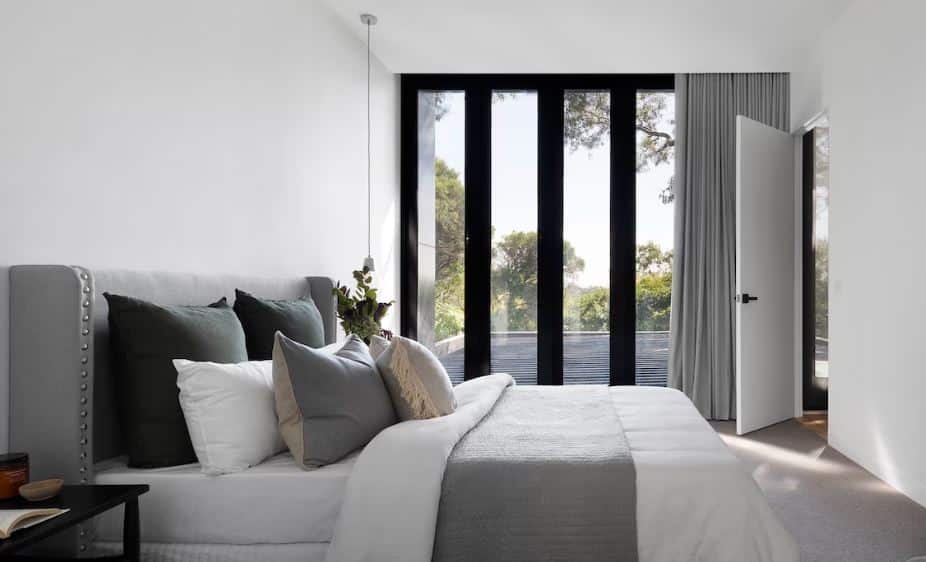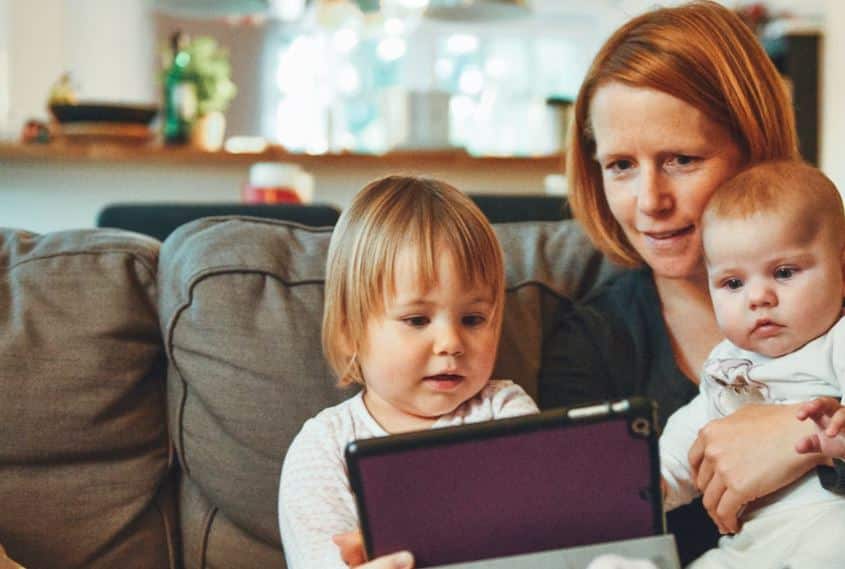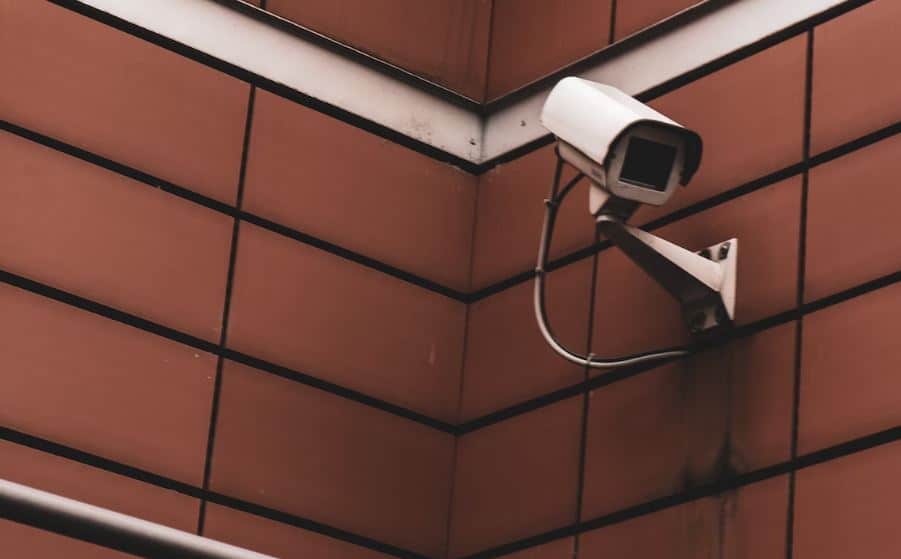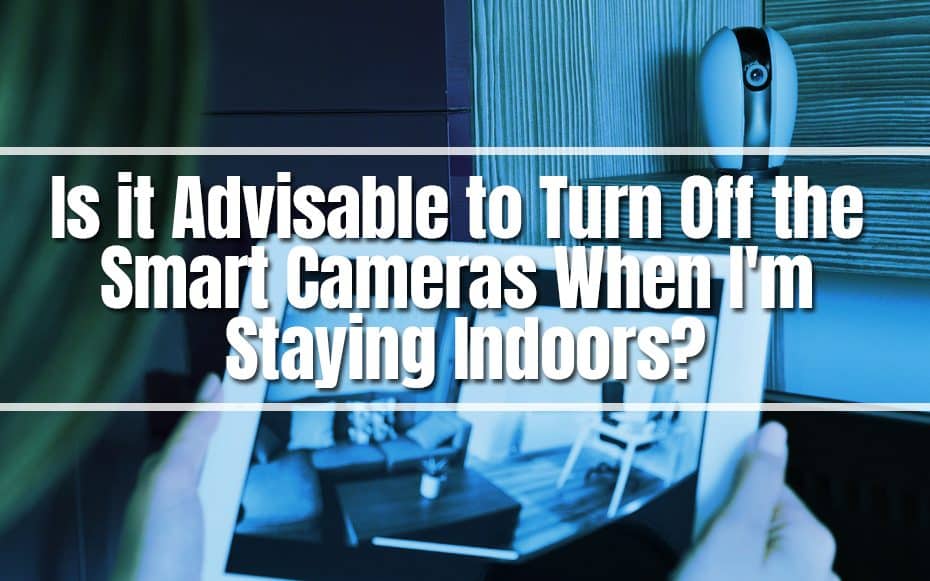Security cameras are fantastic for watching over your house both inside and out. What if you would like to turn them off for more privacy when you’re at home?
If you’re going to install these recording devices in your house, you must take steps to protect them from hackers. You can take some easy measures to protect your surveillance cameras from hackers. If you can access your camera via the internet, someone else can potentially access or “hack” it too. Fortunately, there are some simple actions you can take to secure your security cameras from hackers.

Why Turn Off Your Cameras at Home?
Your smart surveillance cameras may haven’t been turned on or off when you were at home. After all, one of the appeals of smart home technology is that you can plug it in and forget about that now.
But sometimes, a story concerning security cameras that are vulnerable to hacking appears in the news. That may lead you to believe that switching off your security cameras wouldn’t be a terrible idea.
How to Deactivate Security Cameras While at Home
Unfortunately, there is no common method to just turn off your camera because it differs by manufacturer. Here are some things to watch out for and a method for using cameras with wired power sources.
- The majority of security cameras offer a camera cutoff or override feature. However, the specifics of that cutoff and how to implement it varies depending on the manufacturer.
- Most cameras from manufacturers, including Nest, Ring, Arlo, Eufy, and others, enable basic software-based toggles via the app. When you open the controlling app and choose the camera, you will see a simple on/off toggle to manage the camera’s status.
If you begin fiddling with the settings for your particular camera, you’ll discover that you may be able to turn the device off via computer settings. You cannot really switch the device off. Considering the user experience, this is understandable. The majority of individuals would become angry if they had to physically reach the camera to turn it back on after turning it off.
Home Security Cameras: Are They Hackable?
Home security cameras are no exception to the rule that any internet-connected gadget is vulnerable to hacking. Wi-Fi cameras are more prone to attack than wired ones. Cameras with an internal disk are less prone to attack than those with a cloud server. But any camera may be compromised. This may make it possible for someone to spy on you and record your movements. Additionally, they could be able to view any other devices connected to your home network, including your laptop or phone.
Tips for Preventing Hackers from Accessing Your Cameras:
- A connection with Wi-Fi Secured Access (WPA) or Wi-Fi Secured Access 2 (WPA2) encryption, which secures your data, is the best option.
- Enable the firewall that is included in your cameras to monitor and regulate data going to and coming from the camera. The cameras you receive will come with instructions on how to accomplish this.

- Create a strong password to secure your cameras. It is a must to change the default passwords on your cameras right away. Hackers can easily guess them.
- Use a strong password to secure your Wi-Fi router (different from the ones for your cameras).
- If it’s available, enable two-factor authentication. (All of the firms offering home security cameras in our rankings demand two-factor authentication.)
- Keep the firmware on your camera up to date.
It’s challenging to create secure, one-of-a-kind passwords. It’s also nearly impossible to develop a fresh one for each site you use. However, never use the same password again since this is how most home surveillance camera hacks take place. Due to corporate data breaches, over 65 million passwords have been acquired by hackers. Therefore, you put yourself at risk if you use the same passwords and your home security camera.
A strong password ought to:
- Be lengthy (a minimum of 12 characters, although longer is better)
- Employ a mixture of capital and lowercase characters, numerals, and symbols.
- Never provide any information that might be used to identify you, such as your birthdate, home address, or email.
Additional Advice for Safeguarding Your Security Cameras
It’s usually a good idea to avoid installing inside cameras in private areas like toilets and bedrooms. When you get home, disconnect the camera or physically conceal it if you’re genuinely concerned about being monitored. To always be able to determine if someone is looking, use a camera that physically indicates when it is filming.
Start by setting a separate connection with a different router for your cameras. It will help lessen your worries that someone may use your wireless surveillance cameras. Thus break onto other devices on your home network, such as personal laptops.

If you want to keep a watch on your home for package delivery, animals looking through your trash, or burglars prowling about, smart surveillance cameras are a terrific tool. However, hackers can also use their “all-seeing” capabilities to track you online. It makes sense, then, that 28% of respondents from the United States in the 2021 Statista Global Consumer Survey were concerned that others would eavesdrop on them using their smart home appliances.
Conclusion
The main advantage of security cameras is to allow you to check on your house even when you aren’t present. Having a camera installed in your living room to check on your dogs while you’re gone is a terrific idea. How about when you’re at home with your dogs? It might be a privacy risk. The easy answer? To eliminate the possibility that the camera could be on when you want it off, unplug the wire while you are home. Since many wireless security cameras use batteries, this may not be a practical option for all battery-operated security cameras.
Smart homes are an advantage when it comes to security. Having automated appliances can make turning off/on easy on your devices.
